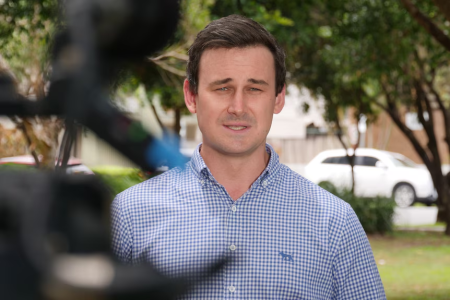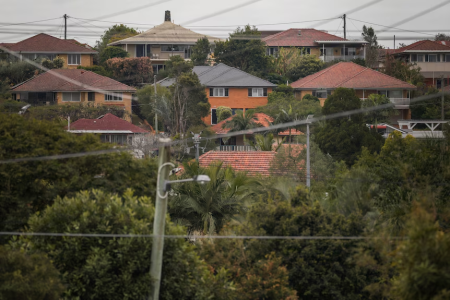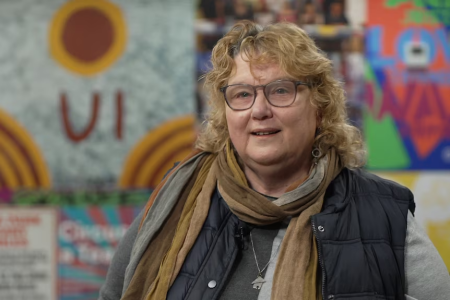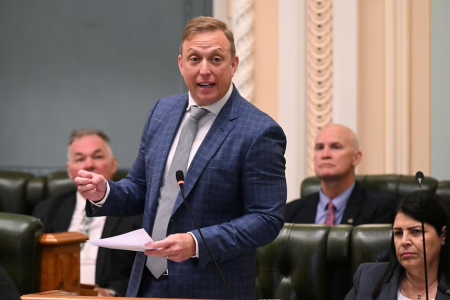Queensland government announces more than half a billion dollars for homeless services
By
ABC News
- Replies 0
The Queensland government will allocate almost $600 million in new funding for the homeless sector in next week's state budget.
It includes a 20 per cent uplift in funding for specialist homelessness services, locked in for the next four years, an increase of $209 million.
Housing Minister Sam O'Connor said it was the "biggest increase in funding for homelessness services and accommodation in Queensland's history".
"This is a really important funding boost for these services because they've never had higher demand than what they're dealing with right now," he said.
"For too long, they've had to deal with a housing system where their funding would run out every June, where their workers, who are on the front line helping people experiencing homelessness find somewhere to stay, weren't sure whether they could pay their own bills."
The funding will also deliver an extra $365 million for crisis accommodation and to support the head leasing of properties.
Head leasing involves the government taking on a private rental until a more permanent solution can be found, and is often used for women and children fleeing domestic violence.
"It's a more sustainable solution for us. Our hotels and motels are costing us, on average, around $1,100 a week. But head leasing is a lot lower at around $400 a week," Mr O'Connor said.
Challenges in the rental market
Stephen Simpson, chief executive of Homelessness Queensland, while welcoming the announcement, pointed to the lack of available rentals.
"Increasing that [head leasing] is fantastic, but securing those properties within the private rental market and getting properties to come onto the market will be a big challenge," he said.
Mr Simpson also highlighted the disparity in homelessness services available in regional areas compared to metropolitan areas.
"We welcome place-based responses where government can sit with local councils and local services to really understand what it is that they need in their community to respond to the population, versus a Brisbane cookie-cutter approach where we just roll out programs across the state," he said.
Chief executive of non-profit organisation Micah Projects Karyn Walsh said securing increased funding to 2029 would provide certainty to groups like hers.
Micah Projects connects people experiencing homelessness with services including crisis accommodation and outreach support for rough sleepers.
"The increase in staffing that 20 per cent has given us is something that we were dreading the thought of not continuing," Ms Walsh said.
"We're really happy that we can keep the staff we've got to manage the high demand, because even with the extra money, demand is much higher than the supply."
Like Mr Simpson, she raised the issue of rental affordability, and pointed to crisis accommodation as a vital stop-gap solution.
"The announcement about crisis accommodation will be a relief for people in motels and families particularly who have been relying on that ... while waiting for [a] private rental that's affordable," Ms Walsh said.
"It will keep us helping...the people we're supporting now, with more people coming everyday."
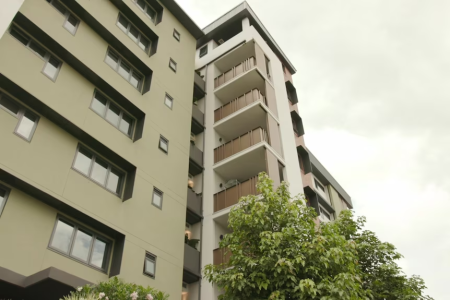
The announcement follows several by the government aimed at freeing up low socio-economic accommodation.
From July, public housing tenants in Queensland who are issued three warnings for serious behaviour in a year could be evicted.
Those evicted for committing illegal offences will be banned from reapplying for two years.
Mr Simpson echoed the concerns of other advocacy groups about the policy.
"We need to adapt what we're doing to be able to respond to a person who might be showing signs of behavioural issues.
"There's a long history of trauma and other things that person is dealing with, so appropriate support is required, versus evicting."
Last week, the government announced it would implement annual income reviews for social housing tenants, with reports of some recipients earning well above the income limit.
More than 52,000 people are on the waitlist for social housing.
Opposition Leader Steven Miles reiterated his calls for the income limits to be reviewed, something not done since 2006.
"I think it's outrageous that the LNP think a single mother earning $46,000 is too wealthy to be provided with housing," he said.
"It shows how out of touch they are. It's time they revisit those thresholds to make sure that we're delivering housing to people who really need it."
The LNP government will next Tuesday hand down its first budget since its October state election win.
Written by Alex Brewster, ABC News.
It includes a 20 per cent uplift in funding for specialist homelessness services, locked in for the next four years, an increase of $209 million.
Housing Minister Sam O'Connor said it was the "biggest increase in funding for homelessness services and accommodation in Queensland's history".
"This is a really important funding boost for these services because they've never had higher demand than what they're dealing with right now," he said.
"For too long, they've had to deal with a housing system where their funding would run out every June, where their workers, who are on the front line helping people experiencing homelessness find somewhere to stay, weren't sure whether they could pay their own bills."
The funding will also deliver an extra $365 million for crisis accommodation and to support the head leasing of properties.
Head leasing involves the government taking on a private rental until a more permanent solution can be found, and is often used for women and children fleeing domestic violence.
"It's a more sustainable solution for us. Our hotels and motels are costing us, on average, around $1,100 a week. But head leasing is a lot lower at around $400 a week," Mr O'Connor said.
Challenges in the rental market
Stephen Simpson, chief executive of Homelessness Queensland, while welcoming the announcement, pointed to the lack of available rentals.
"Increasing that [head leasing] is fantastic, but securing those properties within the private rental market and getting properties to come onto the market will be a big challenge," he said.
Mr Simpson also highlighted the disparity in homelessness services available in regional areas compared to metropolitan areas.
"We welcome place-based responses where government can sit with local councils and local services to really understand what it is that they need in their community to respond to the population, versus a Brisbane cookie-cutter approach where we just roll out programs across the state," he said.
Chief executive of non-profit organisation Micah Projects Karyn Walsh said securing increased funding to 2029 would provide certainty to groups like hers.
Micah Projects connects people experiencing homelessness with services including crisis accommodation and outreach support for rough sleepers.
"The increase in staffing that 20 per cent has given us is something that we were dreading the thought of not continuing," Ms Walsh said.
"We're really happy that we can keep the staff we've got to manage the high demand, because even with the extra money, demand is much higher than the supply."
Like Mr Simpson, she raised the issue of rental affordability, and pointed to crisis accommodation as a vital stop-gap solution.
"The announcement about crisis accommodation will be a relief for people in motels and families particularly who have been relying on that ... while waiting for [a] private rental that's affordable," Ms Walsh said.
"It will keep us helping...the people we're supporting now, with more people coming everyday."

The new funding includes $365 million for crisis accommodation and more than $200 million for specialist services. (ABC News: Michael Lloyd)
The announcement follows several by the government aimed at freeing up low socio-economic accommodation.
From July, public housing tenants in Queensland who are issued three warnings for serious behaviour in a year could be evicted.
Those evicted for committing illegal offences will be banned from reapplying for two years.
Mr Simpson echoed the concerns of other advocacy groups about the policy.
"We need to adapt what we're doing to be able to respond to a person who might be showing signs of behavioural issues.
"There's a long history of trauma and other things that person is dealing with, so appropriate support is required, versus evicting."
Last week, the government announced it would implement annual income reviews for social housing tenants, with reports of some recipients earning well above the income limit.
More than 52,000 people are on the waitlist for social housing.
Opposition Leader Steven Miles reiterated his calls for the income limits to be reviewed, something not done since 2006.
"I think it's outrageous that the LNP think a single mother earning $46,000 is too wealthy to be provided with housing," he said.
"It shows how out of touch they are. It's time they revisit those thresholds to make sure that we're delivering housing to people who really need it."
The LNP government will next Tuesday hand down its first budget since its October state election win.
Written by Alex Brewster, ABC News.

